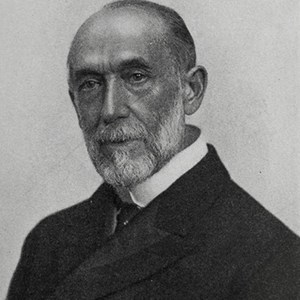Thomas C. Platt was a powerful Republican politician in the State of New York. While not a supporter of Theodore Roosevelt, Platt’s political maneuvering helped propel him to the presidency.
Early Life
Thomas C. Platt was born in 1883 in Owego, New York. He attended Yale University, but did not graduate due to ill health. He subsequently worked as an apothecary, editor, lumber company owner, and bank president. Platt became the President of the United States Express Co. in 1880.
Political Career
Platt, an early member of the Republican Party, entered politics when he was elected clerk of Tioga County in 1859. He went on to serve in the U.S. House of Representatives from 1873-1877. Platt was elected to the U.S. Senate in 1881, but resigned two months later. Platt and Roscoe Conkling, the Republican Party leader of New York state, stepped down to protest President James A. Garfield’s refusal to accept their recommendations for federal appointments in New York State. Conkling subsequently retired from politics, leaving Platt to assume control of the Republican Party in New York.
Later Career
Sixteen years after resigning from the U.S. Senate, Platt was elected a second time. He served as Chairman of the Committee on Transportation Routes to the Seaboard and was a member of the Committee on Printing, the Committee on Cuban Relations, and the Committee on Interoceanic Canals. While Platt was not particularly influential in the Senate, he continued to shape the political landscape in New York. To help bolster his own political power, Platt helped secure passage of the Greater New York bill in 1898, which incorporated the boroughs of Brooklyn, Queens, and Staten Island into New York City.
The same year, Platt reluctantly supported Theodore Roosevelt’s candidacy for governor of New York. However, Platt subsequently found that Roosevelt was an independent thinker who could not be easily controlled. Platt hoped to eliminate him from New York politics by advocating for Roosevelt to be nominated for the vice presidency at the 1900 Republican national convention. The plan backfired when President William McKinley was assassinated, and Roosevelt assumed the presidency in 1901. By the time of the next presidential election, Platt was powerless to stop Roosevelt from being elected to the White House.








